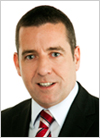New Book: How to Run a Great Hotel | Everything you need to achieve excellence in the hotel industry

The past decade or more has seen unprecedented growth in the hotel industry internationally. As the good times rolled most countries have seen a dramatic increase in the number of hotels, and indeed in their average size. Property developers have played a large role in this, lured as they have been by what seemed to be a guaranteed return on investment.
But let’s be honest for a moment. Many of these new hotels, particularly in the independent sector, aren’t very good. Sure, the facilities available may be top notch - at least initially - but they are often poorly managed in terms of the overall customer experience on offer. A focus on short term returns - usually driven by the need to service debt - has meant that some of these new hotels are effectively run by accountants.
Profitability (which is not a dirty word of course) has become the primary focus; sadly, this has often been at the expense of quality. Such hotels could survive their mediocrity as long as buoyant economic conditions prevailed. As the pie grew, there was plenty of business to go around and any half decent hotel could make a return. This has dramatically changed now that the global economy has hit the wall.
As demand continues to decline, at least in the medium term, an ability to excel will become the major driver of business growth and profitability in an over supplied market. This will come as a welcome development for those hoteliers who have always aimed to be the best because, in recent years, they have watched with frustration as competitors who cared little for quality did quite well. But no more; average or inconsistent offerings, no matter how cheaply priced, will simply not cut it. However, just being good will no longer be good enough either. To really succeed, hotels will have to rise above the norm. In these challenging times, it is not an exaggeration to say that only the very best hotels are going to survive and prosper and this will apply from the budget to the luxury ends of the market.
Yet, the concept of excellence is an elusive one; hard to define and even harder to realise, particularly in hotels. For hoteliers seeking to achieve excellence, there is little practical guidance available to them. International models such as the European Foundation for Quality Model (EFQM) or the Malcolm Baldrige Award can of course provide a route map, but at times such frameworks can seem rather complex and difficult to apply in hotels. How to Run a Great Hotel bridges this gap by demystifying the process of business excellence and continuous improvement.
How to Run a Great Hotel supports experienced and aspiring hotel professionals by providing a jargon free and user-friendly guide which translates the theory of excellence into practice in a meaningful way. It defines what excellence means in a hotel context, why it is of essential interest today and what practical steps can be taken to make it a reality. The content of the book is structured around four main themes which drive excellence:
Theme 1 – Define Direction
Theme 2 – Lead to Succeed
Theme 3 – Engage Employees
Theme 4 – Captivate Customers
It is these four themes which combine to make achieving excellence a more attainable goal. As the realities of the economic downturn bite, an increasing number of hoteliers are focusing on bringing excellence to life in their operations. This shift in emphasis will serve to constantly raise the bar; as levels of quality increase across the industry, hotels which fail to continuously improve their offering will soon be overtaken and eventually left far behind. How to Run a Great Hotel will be a valuable resource for hotel professionals as they strive to stay ahead of the competition.
How to Run a Great Hotel will be published in July 2009 and is available to pre-order at www.amazon.co.uk or by contacting the author, Enda Larkin, at [email protected]
About the Author | Enda Larkin has over 25 years experience in the hotel industry having held a number of senior management positions in Ireland, UK and the US. In 1994 he founded HTC Consulting which specialises in working with enterprises in hospitality and tourism and since that time he has led numerous consulting projects for public and private sector clients throughout Europe and the Middle East. He holds an MBA from ESCP-EAP Paris, a BSc in Management from Trinity College Dublin and a Higher Diploma in Hotel Management from Dublin College of Catering. He currently lives in Geneva, Switzerland and is a member of the Institute of Hospitality. He may be contacted via or at [email protected]
Enda Larkin
Director, HTC Consulting
+41 (0) 22 700 8675
HTC Consulting
